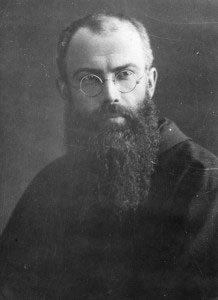Priests act in persona Christi capitas, which means “in the person of Christ, head of the Church.” That is why the priest speaks in the first person at Mass, “This is my body, given up for you.” As Pope John Paul II wrote: “The priest offers his humanity to Christ, so that Christ may use him as an instrument of salvation, making him as it were into another Christ.”
Christ asks of some men the sacrifice of their lives by following him as his more intimate companions in order to be a spiritual shepherd for the people given to his care. Though it looks different today than it has in the past, the reality is that since the beginning of time, certain men have been called to the priesthood. It is a call which God has inscribed in their nature and because of this, priesthood is a call that will bring them lifelong fulfillment.
Sacra potestas. (Latin meaning “sacred power.”) When a priest makes the sacraments present, he wields a sacred power from God.
At ordination, a man’s soul undergoes an ontological change—a change of being—which indelibly marks his soul forever. Once a priest, always a priest.
“For Jesus Christ I am prepared to suffer still more.”
Saint Maximilian Kolbe
St. Maximilian Kolbe understood the meaning of life. He knew that his Vocation was to give himself in love to Christ and His Church. St. Maximilian Kolbe knew that true love involved sacrifice. He lived this out by giving his life for another man who was to be killed in the concentration camp at Auschwitz.

SACRIFICE can often seem like a negative thing. It is easy to focus on what you are giving up instead of why you are giving it up or what you are gaining. For St. Maximilian Kolbe, he was giving up the greatest gift that he had to offer, his life. Yet, he was also giving a man a chance to have life and to go back home to his family. His act was one of martyrdom and more than giving his life, he was gaining eternal life with Christ – perfect and complete happiness.
We can also look to Christ’s sacrifice for us on the cross. Christ gave His life because of His incredible love for us. He wanted us to be freed from sin and able to receive His love perfectly so that we could live as sons and daughters of God the Father. “For the sake of the joy that lay before Him He [Jesus] endured the cross” (Hebrews 12:2) so that “everyone who believes in him might not perish but might have eternal life” (John 3:16).
SACRIFICE is not about losing. It is about love giving all that it has. It is about surrendering a lesser good in order to receive a greater gift. It is about preferring another to yourself.
In discernment, it is important to embrace sacrifice as a way of expressing love for Christ. Whether it is a personal penance or a sacrifice on behalf of another, sacrifice allows your heart to be detached from lesser loves in order to create room to receive the great love of Christ.
The more that you are open to receive the great love of Christ, the more you can understand where and how He is calling you to serve – both in the little ways and also in your Vocation.
Sacrifice in the Christian life begins with the small things. It is about little ways that you can begin to prefer others to yourself, and also to grow in virtue and self-discipline. Practically speaking, sacrifice can be as simple as getting up earlier in the morning to set aside time for prayer, choosing not to eat something on a particular day and offering this up for an intention, and even choosing to react charitably instead of in anger when someone frustrates you. There is a myriad of moments each day when you are invited to make sacrifices. When you do these things joyfully in love, you learn to love as Christ does – you grow in your ability to live more selflessly and this will in turn lead you to a life of greater joy.